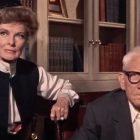Emptiness and Red Pill

The term red pill originates from a scene in the 1999 film The Matrix, in which Neo, the protagonist, is offered a choice between taking a red pill and a blue pill. If he takes the blue pill, his life will continue as it was before—in a dream state within the simulated reality called the Matrix. If he takes the red pill, he will see the world as it really is: a dystopia in which humans have been enslaved by intelligent machines that harvest our bioelectric power. Over the last decade, the concept of taking the red pill in order to awaken to reality—to emerge from Plato’s Cave—has been co-opted by alt-right and other fringe groups to refer to the process of coming to see the world as they see it—through the lenses of racism, anti-Semitism, and misogyny. As Andrew Marantz describes in 2019’s Anti-Social: Online Extremists, Techno-Utopians, and the Hijacking of the American Conversation, “to take the red pill, or to be red-pilled, is to discover some forbidden truth . . . [but] the ‘truth’ in question is actually a dangerous lie: white supremacy, male supremacy, etc.”
The question of how our relationship with reality can be so grossly distorted is not so hard to answer when you consider how much of what you know does not come from direct experience, but is rather mediated by educational institutions, the media, and other authorities, and grounded in trust in those authorities. That trust can be easily eroded. At the conclusion of an interview this summer with Marc Maron, Marantz says, “I think that most people are empty inside, like in a profound way . . . almost in a Buddhist way,” and because of this emptiness, our principles may be more contingent and therefore more open to influence—trustworthy or pernicious—than we think. Discovering emptiness within himself while far from home, the unnamed narrator of Hari Kunzru’s latest novel, Red Pill, falls under the influence of a champion of the alt-right and awakens—it seems—to a brutal reality. But this understanding of reality, too, turns out to be partial, provisional.
Kunzru’s protagonist is a writer who lives in Brooklyn with his wife, a human rights lawyer, and their three-year-old daughter, and is teetering on the edge of a mid-life crisis. “In short, your time is a finite and dwindling resource,” the narrator observes of middle age in the opening pages of the book. “From this moment on, whatever you are doing, whatever joy or intensity or whirl of pleasure you may experience, you will never shake the almost-imperceptible sensation that you are traveling on a gentle downward slope into darkness.” Awarded a three-month residency at the Deuter Center for Social and Cultural Research in Wannsee, a suburb of Berlin, he goes off to Germany to work on a book on “the construction of the self in lyric poetry.”
The Center turns out not to offer the seclusion he had expected; it is founded on principles of “openness and transparency” (“Scholars at the Center contribute to the development of their own communal space, providing open access to their decision-making and research processes, sharing time and resources, negotiating among themselves and pooling their thoughts in the public labor of scholarship”), and so fellows are expected to work in a shared open workspace, and their productivity (number of words written, etc.) is under surveillance. Under these circumstances, the narrator finds that he cannot produce anything at all. He becomes paranoid that he is being watched even in his own bedroom, and his very sense of self becomes insubstantial, confused:
Whenever I tried to focus my attention on it, on myself, to experience some version of the exquisite interiority out of which the great poets had forged their art, the fullness that I ought to have found was missing. All I uncovered was confusion. There were impressions, experiences, and there seemed to be a subject attached to them, someone or something to which they were happening. But there was no unity, no proof that this ‘I’ to whom I was so slavishly devoted, who was, not I came to think of it, more or less my employer, the one on whom my livelihood depended, was present in any meaningful way at all . . . . I was a vapor, an incoherent jumble of events inside a sack of skin.
In his despondence, he occupies himself with long walks, and by reading the Collected Works of the Romantic writer Heinrich von Kleist, who died by suicide with his friend Henriette Vogel nearby on the shore of the Kleiner Wannsee, and by binge-watching a violent cop show called Blue Lives.
The show features a special unit (presumably of the New York Police Department) that, as the narrator describes it, “had lost their moral compass . . . . Everyone—criminals and police—was in high-stakes competition with everyone else, committing acts of appalling violence.” When the narrator first started watching it, the show and its characters—particularly “how they dealt with the extreme situations in which they found themselves, their strange combination of recklessness and calculation”—was an object of fascination. Now (the book is set in 2016), in the wake of the Syrian refugee crisis, with the entire world seemingly on the brink of war and chaos, something larger seems to be at stake: “Blue Lives felt threatening. Threatening to me, to me personally, to who and what I was, to the people I loved.” If the transgressions of the show—including both the law-breaking of the cops and the extremity of the violence itself—are accepted and normalized on TV, reasons the narrator, then what horrors might become accepted and normalized in actual life?
The question of whether and how Blue Lives is an actual threat comes to the forefront when, at a party in Berlin, the narrator happens to meet the show’s creator and showrunner, Gary Bridgeman, who for reasons unknown to the narrator goes by the name Anton. He confronts Anton about the show, questioning its nihilistic violence, as well as its inclusion of obscure literary references, such as a quotation of an eighteenth-century Savoyard royalist, Joseph-Marie, Comte de Maistre: “The whole earth, perpetually steeped in blood, is nothing but a vast altar on which all living things must be sacrificed without end, without restraint, without pause, until the consummation of things.” Anton, however, initially dismisses the narrator: “Whatever’s on your mind, just let it go. It’s entertainment. You’re taking it too seriously.” This rhetorical move is typical of alt-right adherents; as Kunzru explains in “For the Lulz,” his review in The New York Review of Books of It Came from Something Awful: How a Toxic Troll Army Accidentally Memed Donald Trump Into Office by Dale Beran, “ambiguity—the wish to defy norms (and their upholders, the ‘normies’), while maintaining plausible deniability—was a hallmark of 4chan,” one of the online platforms that nurtured the development of the alt-right. The narrator, too, initially describes his reaction to the show as “excessive.” Later, though, he comes to feel otherwise. In his final face-to-face confrontation with Anton at a film screening in Paris, he indicts him for his belief that “the future looks like most of us fighting for scraps in an arena owned and operated by what you call a ‘cognitive elite.’ And I want to say I think the purpose of Blue Lives is to soften us up for that. To prepare us to accept it. You want to terrorize us into accepting that this world is inevitable.”
Anton claims that this world is in fact inevitable. “I’m not saying I like it or don’t like it,” he says, “I didn’t express a preference.” And the narrator’s “outrage,” Anton claims, arises from his preference that the future turns out otherwise—a preference that, he says, “is more or less irrelevant when assessing the truth or falsity of a prediction.” Anton’s logic, however reasonable it might seem to his audience—Anton is slick, placid, whereas the narrator is becoming increasingly deranged—is flawed. Our preferences are actually crucial; insofar as we are able to make decisions based on our preferences, those preferences shape the future. In other words, just as our principles are contingent, so is the future, which Marantz argues, drawing on the thinking of philosopher Richard Rorty.
“We can’t have a teleological view of the future. We can’t assume that things are pre-ordained to happen in a certain way,” says Marantz; Kunzru’s narrator agrees. “I think something ought to be done to stop you,” he says to Anton, but what that “something” might be is unclear. Meanwhile, though he is far from terrorized into acceptance of it, he does become obsessed with, even seemingly possessed by, Anton’s vision of a dystopian world that is similar to that of The Matrix, but with “his” people (“those who could separate themselves out from the herd”) rather than intelligent machines in charge of everyone else (“surplus, just so much unproductive biomass”). “I’m so far into your head it’s almost comical,” Anton says in his last exchange with the narrator; indeed, by this point, the narrator has abandoned the Deuter Center, his writing project, and his family, pursuing Anton in Paris instead of returning home to New York City. What does the narrator hope to find or accomplish in this pursuit? As a person of color, he understands that in Anton’s vision of the world, he and his family are viewed as “surplus, just so much unproductive biomass,” and presumably, as he confesses at the beginning of the novel, he wants to be the kind of man who can protect his family from the horror of such a future. But spending day after day as he does after his final meeting with Anton—in Parisian hotels searching various websites and Internet forums for content related to an impossibly prolific persona he calls “Starhemberg”—hardly seems to be the way to protect his wife and child. Because he is a writer rather than a “man of action,” after being humiliated by Anton again and again, the only “something” the narrator can think to do to stop Anton and his kind is to find some rhetorical ground on which to defeat them.
Eventually, his brain as dried from reading the Internet as Don Quixote’s is from reading books of chivalry, the narrator makes his way to an island off the west coast of Scotland, where, alone on a cliff, facing the sea, in what he implies is an Apocalypse, he perceives what Anton had called “the idea of the North,” the heart of whiteness: the indifferent violence of nature, and the grasping, purposeful violence of humans. The sharpness of the stones, churning of the sea, and shape of his own hand, seemingly “formed to hold a knife or a gun or sword or a spear,” converge in a vision that seems not just to confirm Anton’s view of the future, but also to reveal that violence is fundamental, without a beginning or an end.
Does the narrator’s mystical vision represent an encounter with ultimate reality? Or is it provisional, contingent on his having immersed himself apparently for weeks in the worst garbage on the Internet? In Mahayana Buddhism, the word “emptiness” does not refer to a vacancy or void, but rather to the lack of self-existence of all phenomena; writes Red Pine in his commentary on the Heart Sutra, “Upon close examination, nothing exists by itself. Any given entity can only be defined in terms of other entities in time, space, or mind. And these in turn can only be defined in terms of other entities, and so on ad infinitum.” And so the contexts in which we live, the people and ideas we surround ourselves with, matter deeply. On his own, under the influence of Anton, the narrator has one view of reality. And though the threat he perceives is certainly real, back in Brooklyn, with his family, the narrator comes to see that brutality is not the only reality. “We must remember that we do not exist alone,” he says at the closing of the book, affirming in his contingency, or dependence, on others—especially, though hardly exclusively, his family—his solidarity with them, and both his need and his desire for “some wider and more expansive kind of love.”



